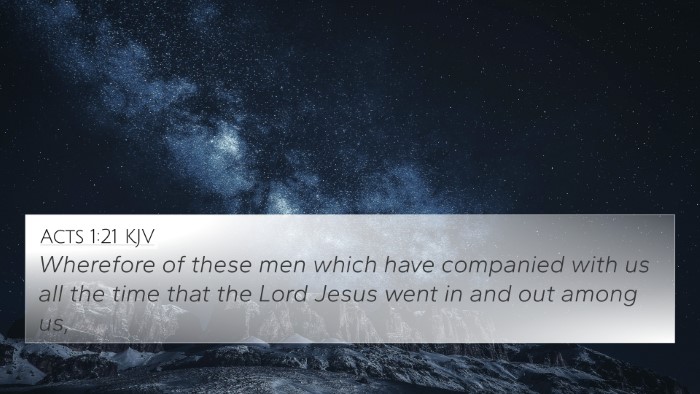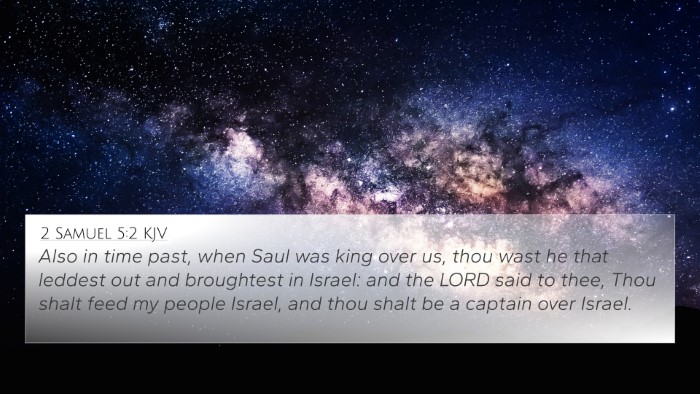Understanding Acts 9:28
Acts 9:28 states, "So he went in and out among them at Jerusalem, preaching boldly in the name of the Lord." This verse marks a significant moment in the life of Saul, who later became known as Paul the Apostle. The essence of Acts 9:28 highlights Saul's transformation and empowerment by the Holy Spirit, emphasizing his boldness in proclaiming the message of Christ. Below is a detailed exploration of the meaning behind this scripture, drawing insights from notable public domain commentaries such as Matthew Henry, Albert Barnes, and Adam Clarke.
Contextual Analysis
Following his dramatic encounter with Jesus on the road to Damascus, Saul's conversion marks a pivotal transition from persecutor to preacher. This change is crucial not only for Saul personally but also for the early Church, which was under threat from his previous actions. Matthew Henry notes that "the boldness of Saul was indicative of the transformative power of faith." Similarly, Albert Barnes emphasizes the significance of Saul's preaching as a demonstration of his newfound identity in Christ rather than mere rhetorical skill.
Thematic Connections
This verse exemplifies themes of transformation, boldness in faith, and divine empowerment. Adam Clarke posits that Saul's actions reflect a deepening commitment to the mission of spreading the Gospel, symbolizing the shift in his life’s purpose. The phrase "went in and out" suggests a regularity in his ministry, denoting both participation in the community and consistent sharing of the Gospel message.
Bible Cross-References
Acts 9:28 aligns with several other scriptures that provide a more comprehensive understanding of its message. Here are some key Bible cross-references:
- Acts 1:8: "But you will receive power when the Holy Spirit has come upon you..." - Highlights the empowerment of the apostles to be witnesses.
- John 15:27: "And you also will bear witness..." - Connects to the theme of witnessing boldly.
- Romans 1:16: "For I am not ashamed of the gospel..." - Reflects Saul's (Paul's) bold approach in preaching the Gospel.
- 2 Corinthians 5:17: "Therefore, if anyone is in Christ, he is a new creation..." - Illustrates the transformative nature of faith.
- 1 Thessalonians 2:2: "But though we had already suffered and been shamefully treated at Philippi..." - Addresses boldness in the face of adversity.
- Philippians 1:14: "And most of the brothers, having become confident in the Lord by my imprisonment..." - Talks about inspiring others to share the word boldly.
- Acts 9:20: "And immediately he proclaimed Jesus in the synagogues..." - Shares the immediate aftereffect of his conversion.
The Role of Cross-Referencing
The process of cross-referencing Biblical texts allows for a deeper understanding of scripture. By looking for Bible verses that relate to each other, readers can uncover thematic connections and gain insights into the broader narrative of the Bible.
Tools for Bible Cross-Referencing
Utilizing a Bible concordance can greatly aid in identifying connections between Old and New Testament scriptures. Resources such as a Bible cross-reference guide or Bible reference resources can enhance understanding and provide context for various themes presented in scripture.
Practical Application
In engaging with Acts 9:28, it becomes evident that the call to boldness in faith can resonate with modern readers. How do you exhibit boldness in your faith journey? Reflecting on this verse can help believers find courage in sharing their faith amidst challenges.
In Conclusion
Acts 9:28 serves as a powerful reminder of the transformative impact of encountering Christ. The boldness exhibited by Saul serves as an example for all believers. By understanding the connections between Bible verses and utilizing tools for cross-referencing, one can navigate the complexities of scripture with greater insight. This practice not only enriches personal understanding but also enhances communal discussions about faith and scripture.









